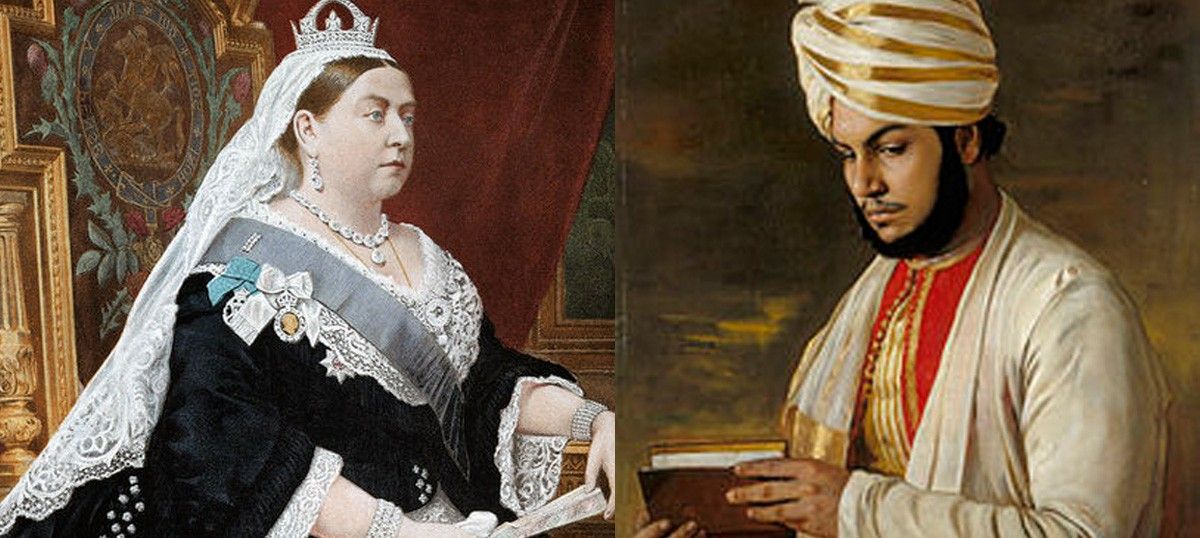Throughout the ages society has tended to be functional, particularly amongst the ruling class, where sense of duty to one’s nation is given priority over the way one feels.
So when love, the bond which brings joy to the life of so many, finds a way through, it often manifests itself in ways that are less than conventional.
Victoria, Queen of the United Kingdom of Great Britain and Ireland, and later, Empress of India, inherited the throne at the age of 18.
After an unhappy childhood, she married Prince Albert whom she loved dearly and lived with for 20 years before his untimely death.
Speaking of her wedding night she wrote, “…My dearest dearest dearest Albert…his excessive love and affection gave me feelings of heavenly love and happiness I never could have hoped to have felt before!…”
Despite their many children, Albert’s death led Queen Victoria into depression, and she began to retreat from public life.
Within this vacuum of sadness and mourning, life carried on.
At her Golden Jubilee in 1887, celebrating 50 years of her ascension to the throne.
50 European kings and princes were invited to the celebration.
Two days later, a man named Abdul, was presented to the Queen as a gift.
That day laid the foundations for a profound friendship between Queen Victoria and Abdul.
Eventually, as well as learning the language of Urdu from him – her personal notes include, written in Urdu, ‘Abdul taught the Queen,’ ‘You will miss the Munshi very much,’ and ‘Hold me tight.’
He would join the Queen on her travels, and on one occasion, on a trip to France, she almost had a revolt as her royal household first refused to take meals with him.
By 1891, the Munshi had his own servants in the royal household and by the end of 1893, the Queen had sent him a Christmas tree and given him his own horse-drawn carriage and driver.
He records how the queen began introducing him to key figures in her government and the empire, including William Gladstone and Sir Mortimer Durand, the architect of the ‘Durand Line’ border between today’s Pakistan and Afghanistan.
He recalls how he was ordered to brief the Secretary of State for India on the Muslim pilgrimage to Mecca.
Munshi is a Persian word meaning secretary or writer which is later used in British India to refer to a teacher.
There was such animosity towards Abdul that upon her death 15 years later, efforts were made to remove all reference to him.
For example, King Edward VII, her successor, sent Abdul back to India, where he was born, and ordered that all correspondence between Victoria and Abdul be destroyed.
Speaking of Abdul, Carolly Erickson, a biographer of Queen Victoria wrote:
‘The rapid advancement and personal arrogance of the Munshi would inevitably have led to his unpopularity, but the fact of his (Indian) race made all emotions run hotter against him.
Racialism was a scourge of the age; it went hand in hand with belief in the appropriateness of Britain’s global dominion.
For a dark-skinned Indian to be put very nearly on a level with the queen’s white servants was all but intolerable, for him to eat at the same table as them, to share their daily lives was viewed as an outrage.
Yet the queen was determined to impose harmony on her household.
Race hatred was intolerable to her, and the ‘dear good Munshi’ deserving of nothing but respect.’
It is a testimony to the Queen’s character that race was not something to be jeered at, rather to be celebrated.
And her affection and kindness to Abdul was a reflection of the very integrity that put the Great into Britain; a stark contrast to the blame cast on immigrants for the troubles facing our nation today popularized by the #Brexit camp in modern-day Britain.
Some had thought that Queen Victoria had lost her mind for having such a friendship.
For example, another biographer, Julia Baird, wrote, ‘Her family disliked and distrusted him.’
Even her private secretary, Courtier Henry Posonby, wrote, ‘Things have come to such a pass that the police have been consulted… But it is of no use, for the Queen says that it is ‘race prejudice’ and that we are all jealous of the poor Munshi.’
Of course, when we learn that Abdul also cooked her curries, perhaps our nation can give credit to Queen Victoria for being an early trend setter, for what is now a cultural dining preference, the curry.

When Abdul returned to India, he did so to an estate the Queen bestowed upon him in Agra, the very same city where a man built a monument for the woman he loved, the Taj Mahal.
Perhaps it is of no coincidence that Abdul ended up in a city resembling the very epitome of love.
The story of Queen Victoria and Abdul, based on Shrabani Basu’s 2010 book, will be released as a movie in the Autumn.
This article is from our archive, originally published on an earlier date and highlighted here for its importance.
References:
